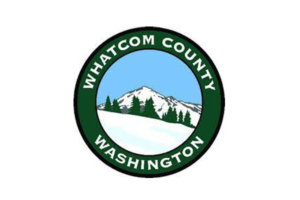Recently, New Venture Advisors presented to the Blue Cross of Idaho Foundation for Health Community Health Academy. The Community Health Academy is a learning collaborative of mayors and city leaders from across the state of Idaho. They work together to learn about policy changes they can adopt to support community health – like how they can support local food systems!
We shared policies, investments, and programs that cities across the U.S. are utilizing to build vibrant local food systems. Since the Idaho communities participating in the Community Health Academy were from small and mid-sized communities, many of them rural, we really had to stretch our research muscles to find great examples of small towns across the U.S. doing transformative food systems work. And we found some really inspiring examples!
Here are a few of our favorites:
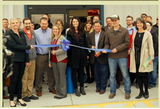 |
St. John’s, KS (pop. 1,400) purchased a lot and developed a new grocery store to provide access to healthy food for their residents after the town’s last grocery store closed. |
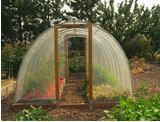 |
Wheat Ridge, CO (pop. 31,000) passed an urban agriculture ordinance that allows greenhouses and hoop houses in city limits without a building permit. |
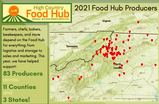 |
Boone, NC (pop. 19,000) partnered with Watauga County to host a food hub in the county’s extension office. This facility has 1,400 square feet of freezers, refrigerators, and dry storage to help farmers aggregate their products and reach larger markets |
 |
Carbondale, CO (pop. 6,785) passed a policy that awards “innovation points” to residential developments (in their Residential Efficient Building Program) if the development includes edible landscaping. |
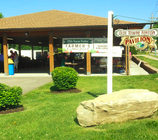 |
Fenton, MO (pop. 4,025) uses a city park and pavilion to host the farmers market each week. The city helps coordinate vendors, creates the infrastructure to take their vendor fees, and then provides the tables they need to sell produce. |
As these examples illustrate, cities and towns can play a critical role in supporting all parts of the food system – from production to consumption to compost. Whether it’s using their power as policymakers, or supporting community food initiatives with tax dollars, municipal governments are a key player in building vibrant food systems in their communities.
Do you have an example from your small- to mid-sized community? Please submit a comment to share them with us!
Looking to convince your local government to participate in food systems work? Consider a food system plan to guide your efforts. Read more about how to know if your community is ready.
Featured image: Darkdiamond67/ Shutterstock
Image 1: Photo Credit: Dick Smith, 2018
Image 2: Source: Susan Mulvihill
Image 3: Source: HighCountryFoodHub.org
Image 4: Source: Fotolinchen Getty Images
Image 5: Source: FentonMO.org


